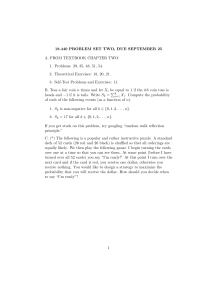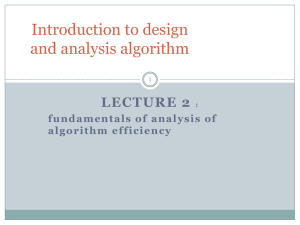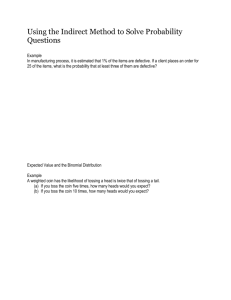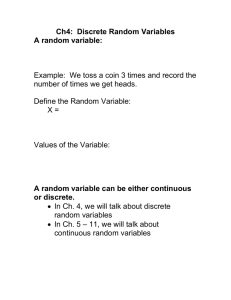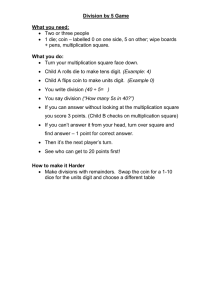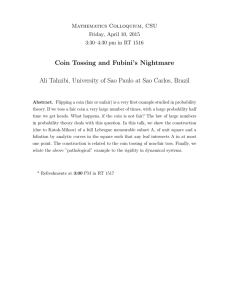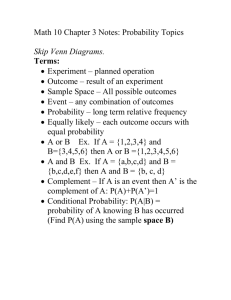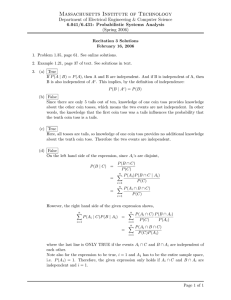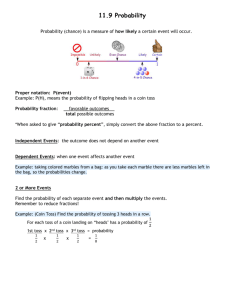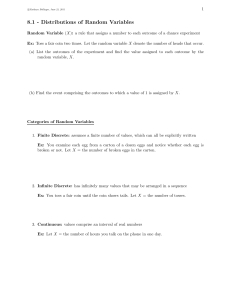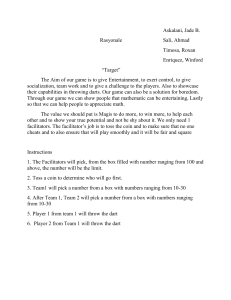Section 6.3 Notes Multiplication Principle
advertisement
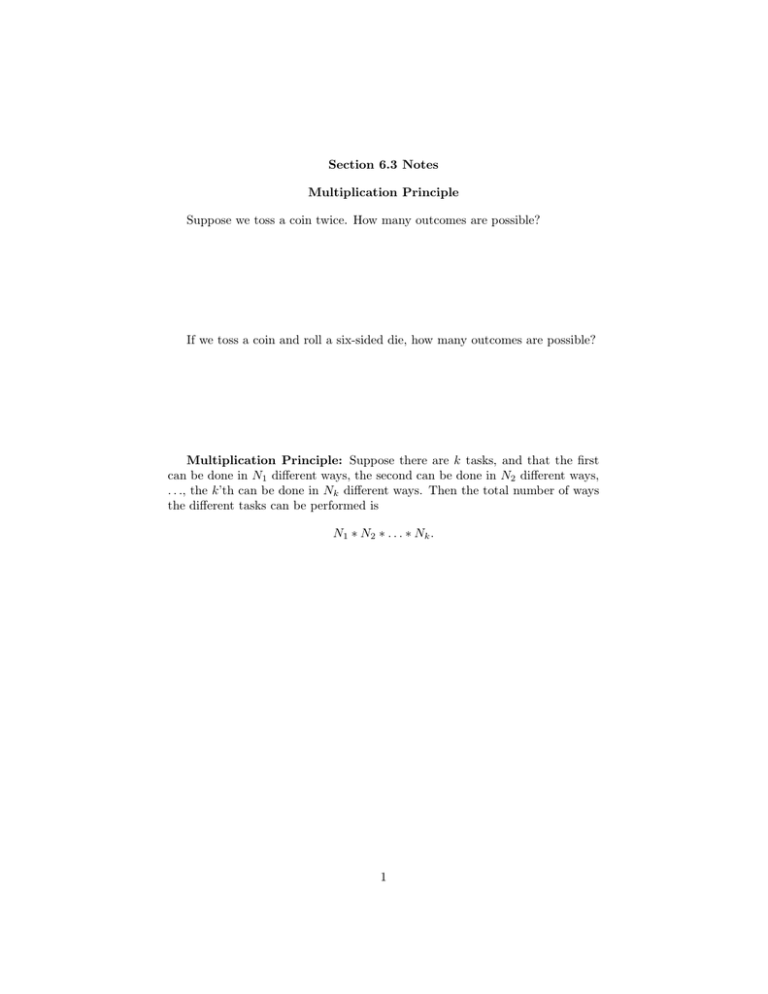
Section 6.3 Notes Multiplication Principle Suppose we toss a coin twice. How many outcomes are possible? If we toss a coin and roll a six-sided die, how many outcomes are possible? Multiplication Principle: Suppose there are k tasks, and that the first can be done in N1 different ways, the second can be done in N2 different ways, . . ., the k’th can be done in Nk different ways. Then the total number of ways the different tasks can be performed is N1 ∗ N2 ∗ . . . ∗ Nk . 1 Example: If Ashlee has 12 shirts, 5 pairs of pants, and 7 pairs of shoes, how many different outfits can she make? Example: If a computer user’s password must consist of 6 lower-case consonants, how many different possibilities are there if (a.) repetitions are allowed? (b.) no repetitions are allowed? 2 Example: How many different 7-digit phone numbers are there, if the first digit can’t be zero? Example: Andrew can’t remember his computer password. However, he remembers the following information: • it is either 7 or 8 letters long • it is case-sensitive • it begins with an upper-case letter • it ends with a number • the 5th character is a “b” How many different passwords will he have to try? 3
